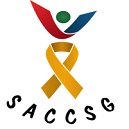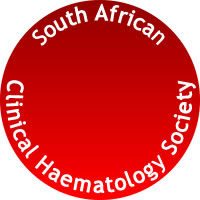Original Research
Inequity in paediatric oncology in South Africa – The neuroblastoma case study
Submitted: 15 December 2020 | Published: 11 March 2021
About the author(s)
Jaques van Heerden, Department of Paediatrics and Child Health, Faculty of Medicine and Health Sciences, Stellenbosch University, Cape Town, South Africa; Department of Peadiatrics, Antwerp University Hospital, Antwerp, BelgiumTonya Esterhuizen, Division of Epidemiology and Biostatistics, Faculty of Medicine and Health Sciences, Stellenbosch University, Cape Town, South Africa
Mariana Kruger, Department of Paediatrics and Child Health, Faculty of Medicine and Health Sciences, Stellenbosch University, Cape Town, South Africa
Abstract
Background: The South African Constitution affords everyone the right to access healthcare services, but in children the care must ensure survival.
Aim: This study aimed to determine whether there was access to equitable paediatric oncology services for the management of neuroblastoma in South Africa.
Setting: Paediatric oncology services in South Africa between 2000 to 2014.
Methods: A literature review was carried out, focussing on access to healthcare in South Africa for children with neuroblastoma. Services were classified in accordance with the International Society of Paediatric Oncology resource settings for neuroblastoma diagnosis. Supplementary data from a retrospective study of the management of neuroblastoma in South Africa were evaluated.
Results: The neuroblastoma care services in South Africa were not uniformly resourced and accessible across the provinces. Two provinces (2/9 provinces) had excellent healthcare services that included access to transplant facilities, whilst three (3/9 provinces) had no services. Traveling distances to healthcare services pose major challenges, whilst number of medical staff providing oncology care were unequally distributed. The Constitution did not define basic healthcare for children, nor did the National Cancer Control plan acknowledge childhood cancer as a defined entity without provision until 2022.
Conclusion: Children diagnosed with neuroblastoma do not have equitable access to healthcare as stated in the South African Constitution. The case of neuroblastoma highlights the inequitable access to childhood care as a whole in South Africa. As the health of children is a national priority, it is therefore necessary to sensitise policymakers to the needs of children with cancer.
Keywords
Metrics
Total abstract views: 3255Total article views: 3257



